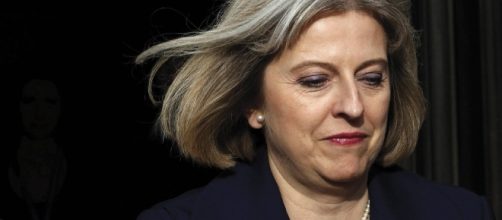Theresa May has become the second female PM after Margaret Thatcher after Andrea Leadsom left the leadership race. With her elected, a new government, with more women in the cabinet and more diverse backgrounds, it has been suggested that we may be in the running for a slightly more modern, liberal leaning government. But just who are the new ministers?
Philip Hammond-Chancellor of the Exchequer
Replacing George Osborne in the Cabinet’s second highest office is Philip Hammond. Formerly the Foreign Secretary under David Cameron, Hammond had previously served as both the Secretary for Transport and for Defence.
Mr Hammond campaigned for the Remain campaign, despite having been seen as something of a Eurosceptic, having previously campaigned to reform the EU.
With a strong history in the Cabinet, Philip Hammond is seen to be an experienced politician capable of achieving a successful economy after Britain’s exit from the European Union.
Amber Rudd-Home Secretary
Formerly Energy and Climate Change Secretary (albeit for just one year since the General Referendum), the new Home Secretary is just one of several new women who now form part of the new Cabinet.
Aprotégé of former Chancellor George Osborne, she previously served as his private parliamentary secretary, before being promoted to junior minister of the Energy and Climate Change department in 2014.
A former investment banker and financial journalist, Ms Rudd is quoted to have entered politics in order to “get a grip on her life” upon being elected as MP for Hastings and Rye.
Justine Greening-Education Secretary
The new Education Secretary Justine Greening is a rare breed indeed- An Education Secretary who attended a non-selective state school. The former Secretary of State for International Development, Greening is also the first openly gay female Cabinet Ministers.
Ms Greening studied economics at Southampton University and is a former accountant.
She faces no easy ride however, and will have to face issues with a lack of school funding, low teacher recruitment excessive working hours for educational staff.
Jeremy Hunt-Health Minister
Nothing’s changed here! Mr Hunt is the same person in the same place as before, and will continue to battle the British Medical Association’s opposition to a new contract for junior doctors, which have led to strike action in the past.
Boris Johnson-Foreign Secretary
The former Mayor of London, and one of the lead campaigners for the Leave campaign will be replacing Philip Hammond in the role of Foreign Secretary.
Though charismatic, some have questioned the appropriateness of his appointment as head of the Foreign and Commonwealth Office due to his history of making inappropriate comments about various foreign representatives, including describing potential US presidential candidate Hilary Clinton as resembling “a sadistic nurse in a mental hospital”.
Despite this, he is noted for his generally positive international profile, this may be a boon in the future.
Liz Truss Justice Secretary
Liz Truss, formerly the Secretary for Environment, Food and Rural Affairs is said to be socially liberal, and so is likely to be something of a change of pace compared to her predecessor Michael Gove. Raised in Leeds and attending a comprehensive school, Ms Truss went on to read philosophy, politics and economics at Merton College Oxford.
However despite this, she was described in 2005 by journalist George Monbiot as being “indissolubly wedded to a set of theories about how the world should be, that are impervious to argument, facts or experience”.
David Davis-Secretary of State for Exiting EU
With a name that rivals John Wellington Wells, David Davis previously held the positions of Conservative party chairman and shadow deputy prime minister.
The precise responsibilities of his position, and indeed of the new department he will be in charge with, are as yet undefined. However, they will likely involve trying to slowly untangle the laws of the UK from those of the EU.

